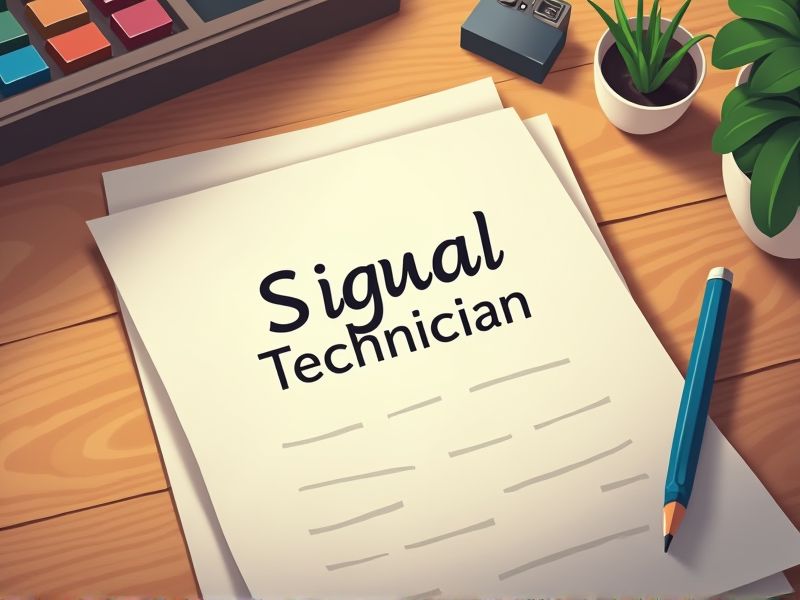
Railway signal technicians play a pivotal role in maintaining the safety and efficiency of train operations, necessitating specialized skills and knowledge. Certifications provide validation of a technician's capability to manage complex signaling equipment and adhere to industry standards. Without these credentials, the risk of operational failures and accidents can increase significantly. Key certifications essential for railway signal technicians include those that ensure expertise in specific technologies and compliance with regulatory requirements.
FRA Railroad Signal Technician Certification
Obtaining the FRA Railroad Signal Technician Certification ensures that railway signal technicians are equipped with knowledge of safety regulations and industry standards, reducing the likelihood of accidents. Certified technicians demonstrate a recognized level of competence, which enhances the reliability and efficiency of signal systems. This certification often leads to increased job opportunities and career advancement, as employers prefer certified professionals. The certification process encourages ongoing education and adaptation to technological advancements in railway signaling systems.
FRA Signal Maintainer Training Certification
The FRA Signal Maintainer Training Certification ensures that railway signal technicians possess standardized knowledge and skills essential for maintaining and repairing signal systems effectively. Without this certification, inconsistencies in signal maintenance practices could lead to increased safety risks and operational disruptions on railways. Railways mandate this certification to comply with federal regulations, which aim to enhance public safety and system reliability. The certification provides technicians with the latest technological advancements and safety protocols, promoting a culture of continuous improvement in railway operations.
OSHA 10 Construction Safety Certification
Railway signal technicians often work in environments with heavy machinery and electrical systems, leading to safety risks that require OSHA 10 Construction Safety Certification. This certification equips them with essential knowledge on hazard recognition and safety practices, minimizing workplace accidents. Regulatory policies frequently dictate that individuals in construction settings maintain OSHA certifications as a standard of safety compliance. Companies hiring railway signal technicians often prefer candidates with this certification to ensure a broader commitment to maintaining a safe work environment.
NFPA 70E Electrical Safety Certification
NFPA 70E Electrical Safety Certification is crucial for a Railway Signal Technician because it addresses specific hazards that arise from working with electrical equipment in railway systems. This certification helps ensure compliance with safety standards, reducing the risk of electrical accidents such as arc flashes. With railways relying on complex electrical signaling for safe train operations, technicians need this certification to accurately assess and mitigate potential electrical risks. Possessing the NFPA 70E certification demonstrates a technician's competence in applying safety measures, which is vital for maintaining system reliability and passenger safety.
Lockout/Tagout (LOTO) Certification
Lockout/Tagout (LOTO) Certification is crucial for railway signal technicians because it ensures safety by preventing the unintentional energizing of electrical circuits during maintenance. Proper LOTO procedures reduce the risk of electrical shocks and equipment-related injuries while performing technical repairs. Certification provides technicians with the knowledge to apply standardized safety measures that comply with regulatory requirements. Certified LOTO practices enhance operational reliability by minimizing accidental signal disruptions and maintaining optimal railway system functionality.
Programmable Logic Controller (PLC) Technician Certification
Railway systems rely on sophisticated signaling mechanisms, which often utilize PLCs to ensure system reliability and safety; therefore, technicians must understand these systems to maintain seamless operations. Due to the critical nature of railway signal functions, any malfunction could potentially lead to catastrophic consequences, making PLC proficiency vital for minimizing such risks. Railways are increasingly integrating advanced technologies, requiring a workforce skilled in current industry standards, which PLC Technician Certification provides. Employers prioritize certified individuals as they demonstrate a verified level of competence and commitment to specialized training in a safety-sensitive environment.
Industrial Electronics Technician Certification
The Industrial Electronics Technician Certification validates a technician's expertise in handling complex electronic systems, essential for the intricate systems found in railway signals. It enhances the safety and reliability of railway operations, as certified technicians are trained to troubleshoot and maintain crucial signal components. This certification ensures that technicians are updated with the latest electronic technologies, which are integral to modern railway signaling systems. Employers gain confidence in the abilities of certified technicians, reducing the risk of errors and accidents on the railway network.
Signal Systems Troubleshooting Certification
Signal Systems Troubleshooting Certification enhances a technician's ability to accurately diagnose and fix faults in railway signaling equipment, leading to improved safety. Certification ensures that technicians are updated with the latest industry standards and practices, reducing the likelihood of errors during maintenance. Rigorous training associated with certification can significantly decrease downtime caused by signal failures, ensuring efficient rail operations. Holding certification can lead to career advancement opportunities for technicians, as it validates their expertise and dedication to professional development.
Communication Systems Installation Certification
Acquiring Communication Systems Installation Certification ensures that a railway signal technician has the requisite knowledge and skills to handle complex systems safely and effectively. Trained technicians help maintain system integrity, reducing errors and potential service disruptions. Certification demonstrates a technician's commitment to industry standards, which can increase trust and credibility with employers and clients. Employers often prefer certified technicians as it signals a reduced risk of accidents and enhanced system reliability, improving overall operational efficiency.
ISA Certified Automation Technician Certification
The ISA Certified Automation Technician Certification ensures that a Railway Signal Technician possesses the necessary skills to work with complex automation systems crucial for train operations. Railways increasingly rely on sophisticated signaling systems, and certification validates a technician's proficiency and ability to troubleshoot these technologies efficiently. Implementing automation skills helps reduce the likelihood of system failures and increases the overall safety and reliability of railway operations. Sectors looking to improve safety standards and system integrity often prefer or require certified professionals, supporting the demand for this credential.
Summary
With certifications, you can significantly enhance your credibility as a Railway Signal Technician. This often leads to better job opportunities and increased potential for career advancement. Employers tend to have more trust in certified professionals, expecting higher technical skills and commitment to safety standards. Consequently, certified technicians may also experience higher salary prospects and greater job security.
